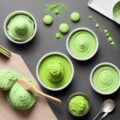The Surprising Benefits of Butter for Athletes
When we think of an athlete’s diet, butter probably isn’t the first food that comes to mind. However, this rich, creamy spread has some surprising benefits that can support athletic performance and overall wellbeing. While moderation is key, incorporating high-quality butter into a balanced diet may offer athletes valuable nutrients and energy to fuel their pursuits. Let’s explore why athletes might want to consider adding a pat of butter to their meal plan.
Nutrient-Dense Energy Source
Butter is a concentrated source of energy and important nutrients that can benefit active individuals:
- Healthy fats: Butter contains short and medium-chain fatty acids that are easily absorbed and utilized for energy.
- Fat-soluble vitamins: It’s rich in vitamins A, D, E and K2, which support bone health, immune function and more.
- Conjugated linoleic acid (CLA): This beneficial fatty acid may help reduce body fat and increase lean muscle mass.
For athletes engaged in endurance activities or high-intensity training, butter can provide sustained energy to power through workouts and competitions. The fats in butter are metabolized slowly, helping to maintain stable blood sugar and energy levels.
Supporting Recovery and Reducing Inflammation
Proper recovery is crucial for athletes, and butter may play a supportive role:
- The saturated fats in butter can help reduce inflammation in the body, potentially easing post-workout soreness and supporting faster recovery.
- Butter contains butyrate, a short-chain fatty acid with anti-inflammatory properties that may benefit gut health and immune function.
- The vitamins and minerals in butter support various recovery processes, including muscle repair and bone health.
By incorporating small amounts of high-quality butter into post-workout meals or snacks, athletes may enhance their body’s natural recovery processes.
Butter for Brain Health and Mental Performance
Athletic performance isn’t just about physical capabilities – mental focus and clarity are equally important. Butter contains compounds that may support cognitive function:
- The healthy fats in butter are crucial for brain health and can improve focus and mental clarity.
- Butter is a good source of cholesterol, which is essential for proper brain function and hormone production.
- The vitamin K2 in butter supports brain health and may help prevent cognitive decline.
For athletes who need to stay sharp and focused during training and competition, including moderate amounts of butter in their diet could provide valuable brain-boosting nutrients.
Choosing the Right Butter for Athletic Performance
Not all butter is created equal. To maximize the potential benefits for athletes, consider these factors when selecting butter:
- Grass-fed butter: This type of butter comes from cows that graze on grass, resulting in higher levels of beneficial nutrients like omega-3 fatty acids and CLA.
- Organic options: Choosing organic butter helps avoid potential exposure to hormones or antibiotics.
- Cultured butter: This fermented variety may offer additional probiotic benefits for gut health.
Remember, quality matters when it comes to incorporating butter into an athlete’s diet. Opt for the best butter you can afford and enjoy it in moderation as part of a balanced nutrition plan.
Incorporating Butter into an Athlete’s Diet
While butter can offer benefits, it’s important to consume it mindfully as part of a well-rounded diet. Here are some ideas for incorporating butter into an athlete’s meal plan:
- Add a small pat of butter to morning oatmeal or toast for sustained energy.
- Use butter to cook vegetables, enhancing the absorption of fat-soluble vitamins.
- Blend grass-fed butter into coffee or tea for a nutrient-rich energy boost.
- Include a small amount of butter in post-workout meals to support recovery.
As with any dietary change, it’s wise for athletes to consult with a sports nutritionist or dietitian to ensure butter fits appropriately into their individual nutrition plans.
Frequently Asked Questions
1. Is butter really healthy for athletes?
In moderation, high-quality butter can be part of a healthy diet for athletes. It provides important nutrients and energy, but should be balanced with other whole foods as part of an overall nutrition plan.
2. How much butter should an athlete consume?
The appropriate amount varies depending on individual needs, activity levels, and overall diet. Generally, 1-2 tablespoons per day can be a reasonable amount for many athletes, but it’s best to consult with a nutrition professional for personalized advice.
3. Can butter help with weight management for athletes?
While it may seem counterintuitive, the healthy fats in butter can support satiety and stable energy levels, which may aid in weight management. However, portion control is key, as butter is calorie-dense.
4. Is margarine a good alternative to butter for athletes?
Generally, natural butter is preferable to margarine for athletes. Margarine often contains trans fats and artificial ingredients, while butter offers more nutritional benefits when consumed in moderation.
5. Can lactose-intolerant athletes consume butter?
Many lactose-intolerant individuals can tolerate butter, as it contains very little lactose. Ghee (clarified butter) is another option that’s virtually lactose-free. However, those with severe dairy allergies should consult a healthcare provider.
In conclusion, while butter might not be the first food that comes to mind for athletic performance, it can offer surprising benefits when consumed mindfully as part of a balanced diet. By choosing high-quality butter and incorporating it in moderation, athletes may enjoy enhanced energy, improved recovery, and support for overall wellbeing. As with any dietary change, it’s important to listen to your body and work with nutrition professionals to create an eating plan that best supports your individual needs and goals.









